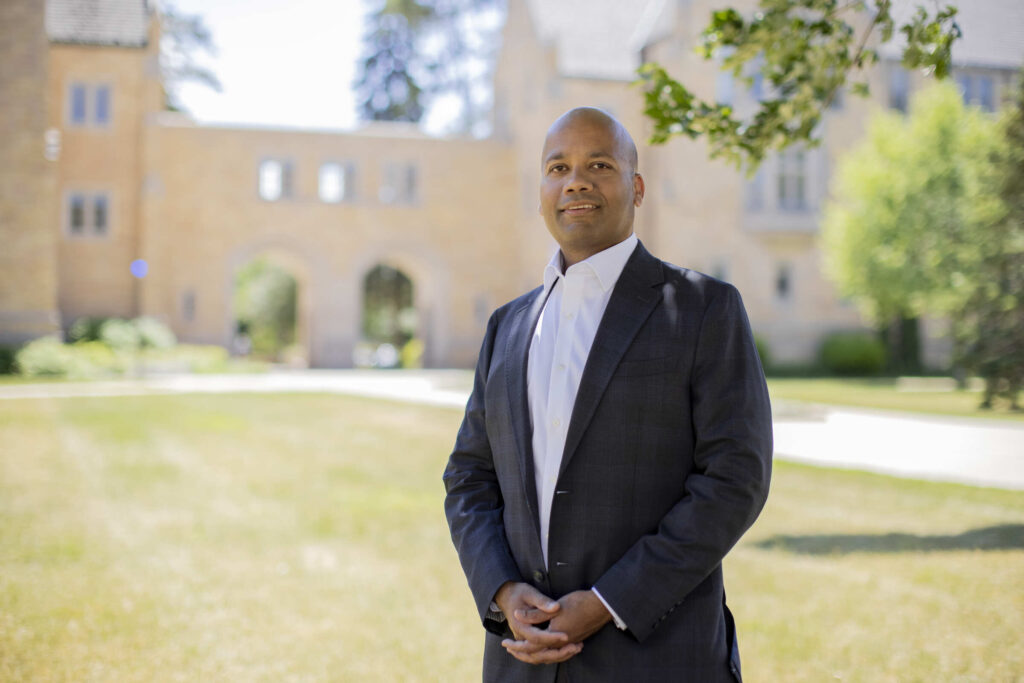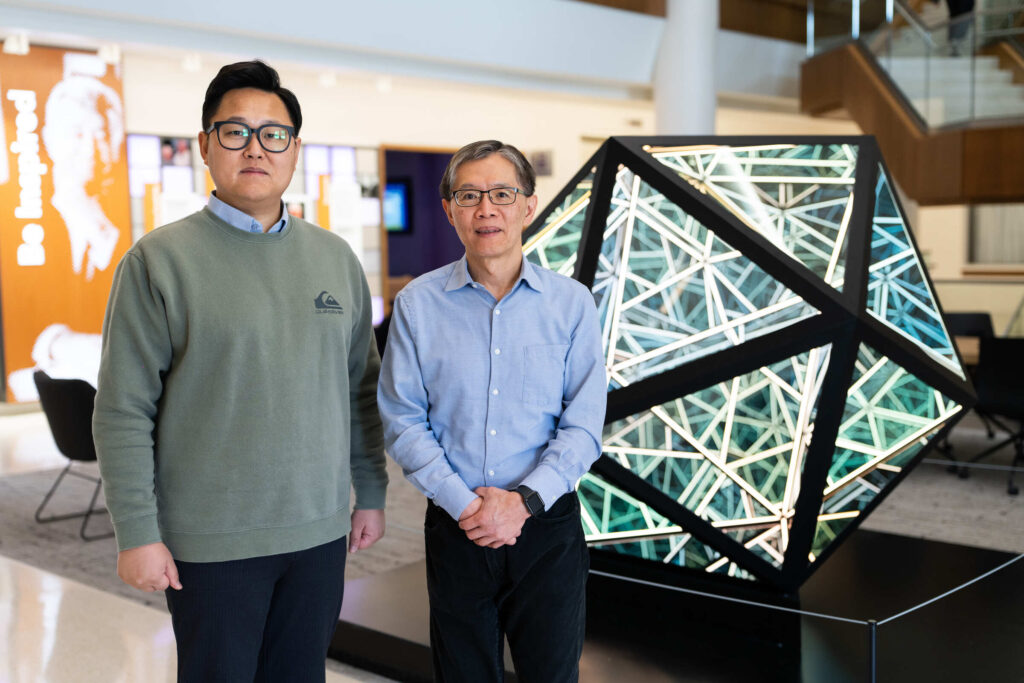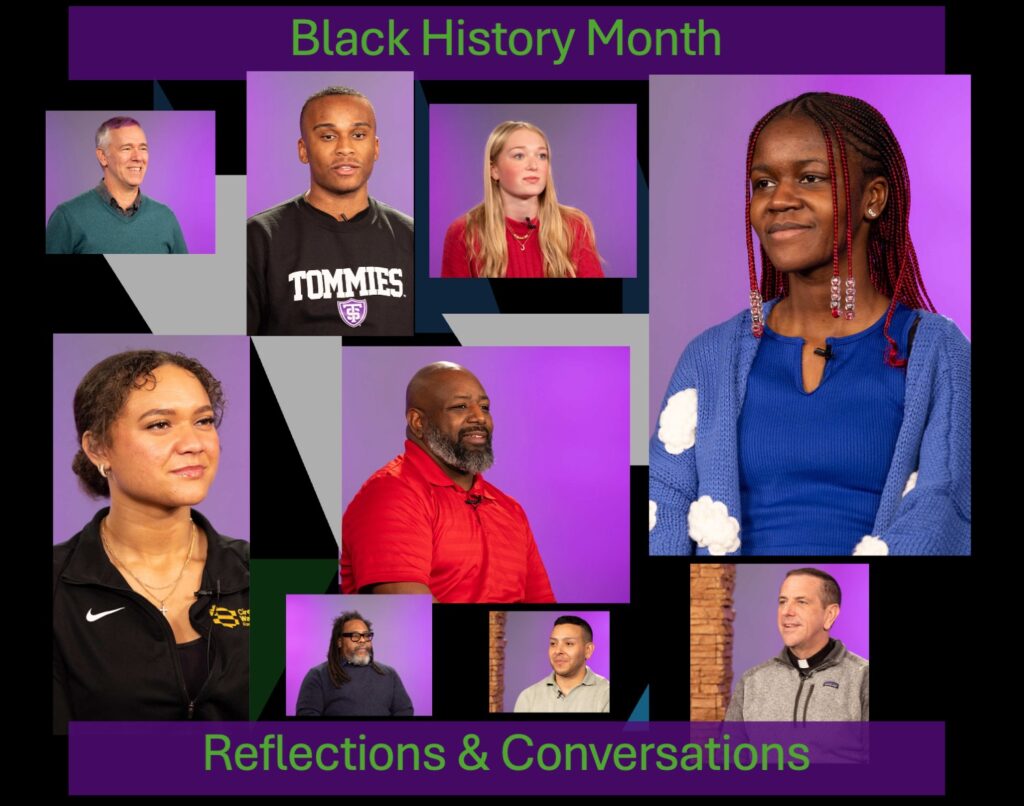Many people often feel like they wish they could be in two places at once. While that may not be physically possible, the possibility is on the rise digitally as artificial intelligence continues to grow and evolve.
One Minnesota radio personality, Jordana Green, hopes to have AI continue her legacy now and long after she’s gone. She even enlisted Professor Manjeet Rege, director of the Center for Applied Artificial Intelligence at the University of St. Thomas, to assist her.
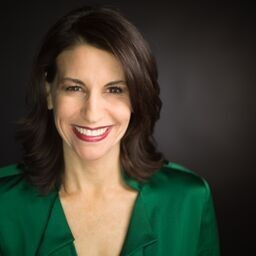
Green met Rege, who is also the chair of the Department of Software Engineering and Data Science in the School of Engineering, when he appeared on her WCCO Radio program to discuss emerging AI technology.
His appearance on the show in May 2023 came about one year after Green received a successful bone marrow transplant that helped put her 2020 leukemia diagnosis in remission for the second time.
Very open about her battles with leukemia on the radio and social media, Green wanted to help others by being a supportive voice and source of information for those living with cancer or just seeking additional information. AI can help her do that by allowing her to be a bot in a virtual space while her body was physically elsewhere.
“I want my listeners to be able to ask questions and debate issues with me that I don’t have time for on the air,” Green said. “It seemed artificial intelligence could make that happen.”
Think of those chatbots that pop up on your computer screen when you visit certain websites and the customer service avatar asks you if they can help you find what you’re looking for. With advances in AI, an avatar that looks and sounds just like Green is possible.
“Conversational AI and chatbots have made remarkable progress, evolving into sophisticated systems capable of engaging in natural, human-like dialogue. These technologies are transforming industries by enhancing customer service, streamlining workflows, and opening up new possibilities for human-computer interaction,” Rege said. “And when you add someone’s voice and likeness, like Jordana’s, it can be a unique and enriching experience for the user.”
While knowing the benefits of having an interactive bot that looked and sounded like Green, Rege also warned her there’s more to consider regarding her brand and image.
“Professor Rege tried to talk me out of it,” Green said. “He was worried the technology was not safe to use with my voice and face, as deepfakes are plentiful and damaging. Having been on radio and television for decades, the cat was already out of the bag, I said. My voice and likeness were quite public already so I may as well use them for something meaningful.”
Rege accepted the challenge and tasked a graduate student with building a prototype of Jordana AI. The sample avatar was trained with some of Green’s knowledge and opinions.
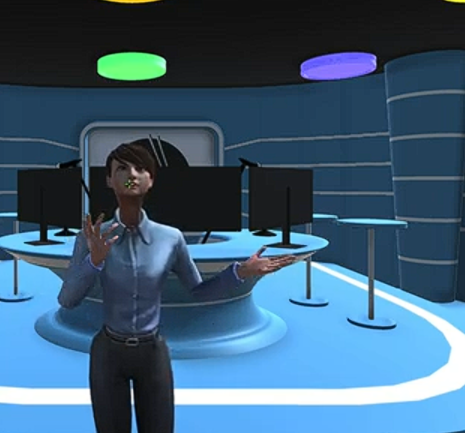
“The initial version of our conversational AI has been developed using select episodes from Jordana's show transcripts as its primary training data,” Rege said. “This approach was chosen to evaluate the AI’s capability to assimilate and leverage the specific content and insights discussed on the program, thereby creating a knowledge base for the chatbot. At present, the system employs a standard synthetic voice for output. Our roadmap includes plans to implement a custom synthetic voice modeled after Jordana’s, enhancing the authenticity and user experience of the interaction.”
Green decided such a bot needs a home where it can reach beyond her Minnesota listeners. She reached out to the National Marrow Donor Program, which she had worked with in the past to raise awareness, marrow and money. NMDP connects patients with donors of blood stem cells and marrow. It also funds research and patient care for those with blood cancers.
“I want to help others by being a supportive voice and source of information on the NMDP website,” Green said. She also sees other uses for a version of Jordana AI, and they are personal.
“As a two-time leukemia survivor and stem cell transplant recipient, I wanted my teenage children to have the ability to ‘chat’ with my avatar if the cancer returned and there were no more life-saving options for me. Yes, these are dark thoughts, but they are thoughts of many people facing life-threatening illnesses,” she said.
A project like “Jordana AI is just the kind that fits with the mission of the University of St. Thomas, which is to educate students to be morally responsible leaders who think critically, act wisely, and work skillfully to advance the common good,” Rege said.
St. Thomas offers a master’s degree in artificial intelligence. “An understanding of AI systems is becoming essential, regardless of industry or job role,” said Rege, who teaches software engineering and data science. “Organizations today are seeking skilled professionals who can harness the power of AI to enhance efficiency, make data-driven decisions, and innovate.”
The University of St. Thomas Master of Science in Artificial Intelligence program is structured to provide the foundational knowledge and tools to prepare students to become successful AI practitioners. Students will gain expertise in machine learning, neural networks, and ethical AI, guided by leading scholars and industry experts.
An early prototype of Jordana AI was developed by Ilyas Alhassan, a graduate student in the MS in AI program.
“Working on the Jordana AI project has been an incredible learning experience,” Alhassan said. “Seeing how advanced language models can be applied to real-world data is fascinating. The process of transforming audio into structured information that easily is both challenging and rewarding.”
He added, “Collaborating closely with Dr. Manjeet Rege, whose expertise was invaluable in making this complex system a reality, added a profound depth to the project. Valuable insights into natural language processing and database management have been gained. This project not only honed my technical skills but also enriched my understanding of AI’s practical implications in media. Dr. Rege’s guidance was a cornerstone in navigating the intricate challenges and innovating solutions that enhance user engagement and accessibility. The opportunity to turn spoken content into a rich, interactive database exemplifies the transformative power of AI, making information more accessible and engaging for everyone, and adding a human touch to the digital world.”
Some students studying with Rege will also have an opportunity to work on other AI bot projects. One of them is the Insurance Recommender Chatbot, in collaboration with Jote Taddese, a vice president of software engineering at Optum, who is also the chair of the St. Thomas School of Engineering’s Software Engineering and Data Science Department’s Strategic Advisory Board.
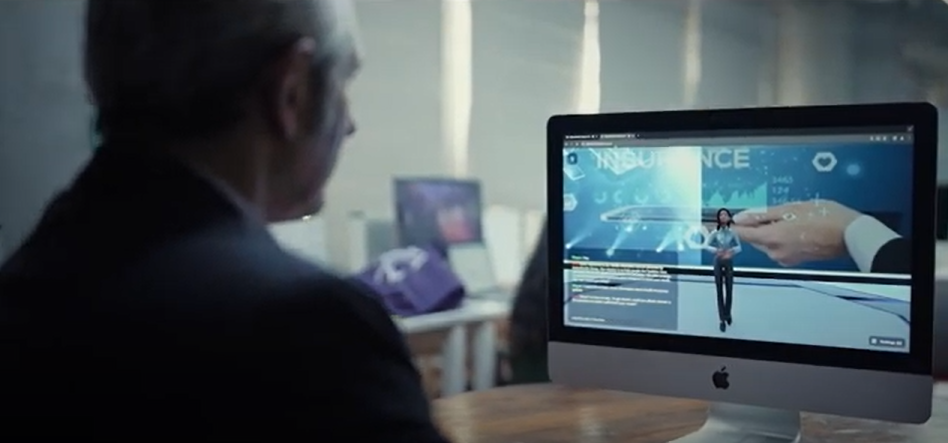
“Employers across industries are increasingly seeking graduates with AI skills, as they drive innovation and efficiency, making them invaluable assets in today's competitive job market. The University of St. Thomas School of Engineering is contributing to Minnesota employers by equipping students with cutting-edge AI knowledge and practical experience, ensuring they are ready to meet the demands of the modern workforce.”
For development and deployment of both the chatbots, Rege collaborated with the AI Research Center at Woxsen University, Hyderabad, India. Dr. Hemachandran Kannan from Woxsen University said, “Working on the Jordana AI and Insurance Recommender project has been an exhilarating journey. Collaborating with Dr. Manjeet Rege has been driven by a shared vision of harnessing AI for societal benefit, and the results have been immensely rewarding.”
While both chatbots are still under development and months away from being available to the public, the AI industry is evolving fast, Rege added. The skills the students are learning are needed across industries beyond technology-driven ones, including education, publishing, arts and theater. Actor Robert Downey Jr., known for his Marvel Universe characters, is even making his Broadway debut in Ayad Akhtar’s “McNeal,” which will feature a “Metahuman Digital Likeness” of Downey alongside the actor.
“The AI industry is experiencing unprecedented growth, with breakthroughs occurring at a breathtaking pace,” Rege said. “As AI technologies mature and become more integrated into various sectors, we’re on the cusp of a paradigm shift in how businesses operate, how we solve complex problems, and how we interact with technology. This AI revolution promises to unlock new levels of efficiency, creativity and innovation across every facet of our lives and work.”

